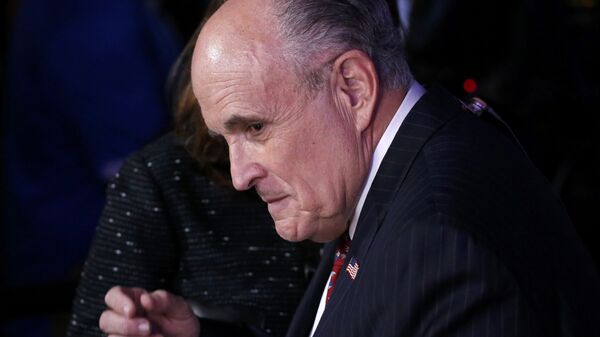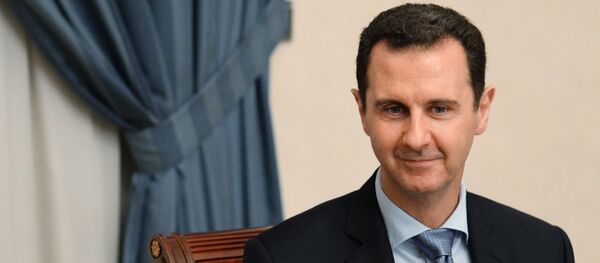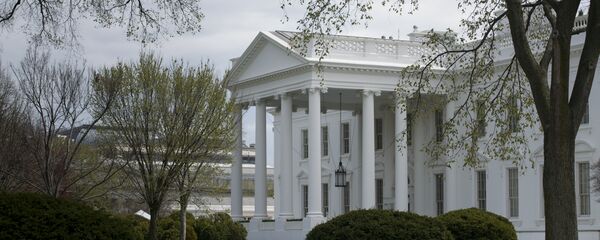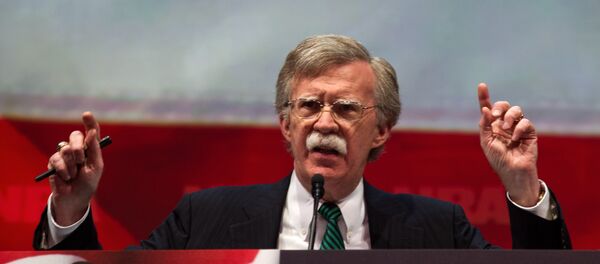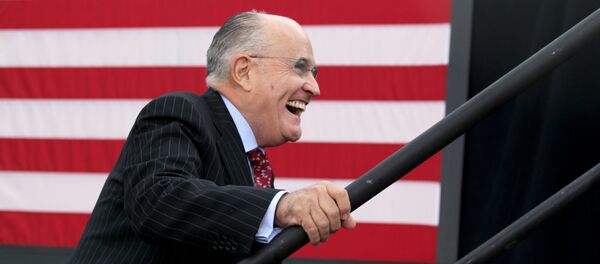Speaking to Radio Sputnik, Henningsen explained that what Assad was talking about "is a potential realignment in foreign policy – a clean break from what has been the US policy for the last eight years, and even going back further than that, which is Washington's disregard for respecting the national sovereignty of countries – their aiming to overthrow governments through regime change and other deep state subterfuge activities led by the CIA and using partners like George Soros on the ground, and softening up countries to the point where destabilization could lead to regime change."
"This has been the Obama doctrine, unofficially anyway," the journalist explained, adding that "this is what we've seen in Ukraine and Syria. And you could argue that a few Arab Spring countries would fall into that category as well."
"So Bashar Assad is talking about the potential that this presidency might be looking at Syria as a nation state with some sort of respect, rather than looking at it as something to topple, and disintegrate, a la Libya, for instance." This, Henningsen stressed, would be a "complete overhaul in the philosophy of [US] foreign policy."
"Donald Trump has made a number of statements on the campaign trail that equate with common sense, but as we assemble a cabinet in Washington, you have some characters on the periphery that the establishment would like to insert or embed. [Trump's win is seen as] an opportunity for some neo-conservative elements to get reenergized and get back in the game."
"Namely, we're looking at characters like John Bolton and Rudy Giuliani; these would be the war hawks, people who have called for the bombing of Iran – people who say that Iran is the world's number one state sponsor of terror – making statements like this that really come off a memo that's probably handed to them by the Israeli lobby."
"That's a problem, because of Iran and their support of Syria, and the relationship with Russia and other countries, like China. This is going to be a constant source of problems, of conflicts of interests within the Trump cabinet."
Accordingly the journalist suggested that only time will tell how everything plays out. "If there is a complete realignment of US foreign policy, then they will be looking at Iran differently, but this rhetoric against Iran has been so deep and pervasive over the last many years in the US that it would be very hard for some politicians to walk back some of the outrageous statements [they have made]."
Asked whether President-elect Trump will be able to overcome these hurdles after stepping into office, Henningsen emphasized that thing the businessman has going for him is his independent streak.
"This is different with Trump: he's used to being a CEO, making his own decisions; actually caring about making his own decisions. He doesn't have the political experience, but has a lot of experience as a decision maker – as a chief executive."
"So we'll have to see," Henningsen stressed. "It's going to be very difficult for him to maintain that air of common sense foreign policy with so many vipers in the nest. There are a lot of interests and a lot of big money in Washington that have a vested interest in seeing perpetual conflicts."

